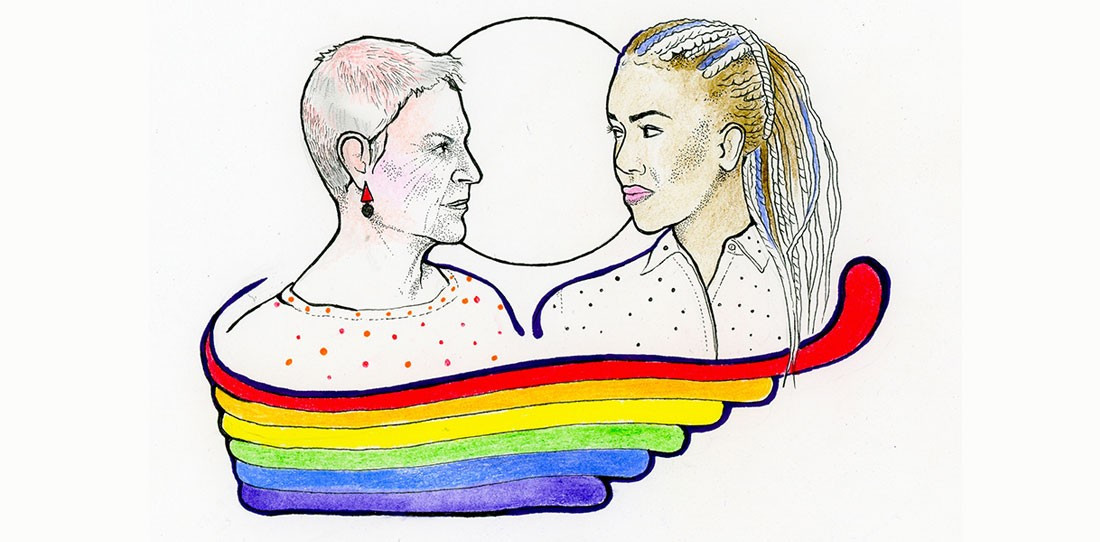Halfway to somewhere
Uncovering richness instead of burden
For the past year, I’ve been working on an academic research project in which I interview individuals from the trans community who belong to generations before me.
For myself, academic pursuits are always entangled in personal life. Learning about the world and about oneself do not have to be separate ventures. I find understanding my position in the world helps me understand how my own perspective is shaped, which benefits my research.
Queer and trans people are often separated from the generations in our community who came before us. This is partly because people usually have to take a decisive step into queer communities rather than being born and raised as part of them.
Living in a community that has and continues to struggle with marginalization also means that, much of the time, we are just trying to figure out how to survive and are not afforded the opportunities of being able to think of and mentor future generations. Because of this, being trans can sometimes feel like you are the only one having a different experience of gender, and trying to figure out what that means can be extremely lonely.
This disconnect also means that young queer and trans communities can become estranged from activist work that has come before. Sometimes, queer activists feel like they have to work from nothing, when in reality there have been generations before who could be learned from.
Interviewing and befriending trans community members from generations before me has made the world feel a lot more survivable.
Sometimes, living with the pressure of worrying that others think who I am is a joke or encountering even-worse transphobia that sees my very existence as a threat takes a daily toll on my self-confidence. Learning the stories of people who have faced this kind of adversity and have not only survived but also found joy gives me a tremendous amount of hope for my own future, for the future of all people.
One interview subject I met through this project has since become a close friend. After a lifetime of wrestling with his gender identity, he described his experience of being trans to me as a feeling of richness.
I often have the sense that others experience my trans identity as a burden on them. Sometimes people complain to me about how difficult they find it to use my correct pronouns. Other times, people muse at me about how my generation doesn’t understand the meanings of the words we use – as if the English language were a static object frozen in time that is only now being altered.
Learning from my trans elders about how they have experimented with language and identity throughout their lifetimes has informed my personal life just as much as my academic study. My memories of hearing trans people describe their lives in terms of richness rather than burden is sometimes the thing that helps me brush off aggressive stares or recover from coming across hateful Twitter threads.
I keep coming back to my friend’s understanding of being trans as richness, of finding beauty in something that is often disparaged. While I am not there myself, this understanding is something I want. This feels like a way forward even when the future is sometimes hard to imagine.
Jase Falk is a non-binary femme, student and writer who lives on Treaty 1 territory.
Published in Volume 74, Number 17 of The Uniter (February 6, 2020)








